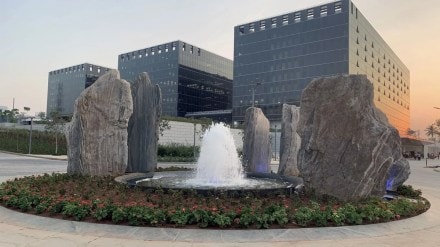Investment banks are increasingly hiring finance specialists in cities like Bengaluru, Mumbai and Hyderabad, a trend expected to grow following the Trump administration’s H-1B visa restrictions, Bloomberg reports.
According to Bloomberg’s report, JPMorgan Chase & Co. is hiring credit support specialists in Bengaluru to monitor covenant breaches, while Goldman Sachs Group Inc. is seeking associates for loan reviews across various assets. In Mumbai, KKR & Co. is expanding its team to oversee portfolio companies, and Millennium Management LLC is looking for risk analysts for its derivatives trading team.
The increase in job postings highlights Wall Street’s increasing dependency on Indian hubs, especially in light of the Trump administration’s tightening of regulations on foreign workers, particularly affecting the H-1B visa program.
India’s highly skilled, talented workforce accounts for approximately 75% of all approved H-1B visas. This shows a strong dependency on Indian talent in STEM fields.
The cost for US firms hiring foreign H-1B workers has increased due to the new $100,000 petition fee per employee. Recent policy changes, such as a $100,000 fee per worker, the removal of automatic EAD extensions and stricter enforcement, have made US employers look for other ways to manage their workforce.
However, it was widely believed that US companies would still not opt to hire American workers and would instead offshore their employment. That seems to be increasingly happening now.
Senior executives from two US banks in India are discussing with their head offices on how to enhance their global capability centers due to the H-1B visa restrictions. Some banks that had offered US positions are contemplating revoking those offers or developing alternative roles at their GCCs, reported Bloomberg.
Global Capability Centers (GCCs) are offshore subsidiaries of U.S. firms, strategically located in tech hubs like Bengaluru or Hyderabad, overseeing functions such as R&D, IT, finance, and customer support.
The GCC model helps US companies to sustain competitiveness by leveraging skilled talent from India while avoiding high visa costs and compliance risks.
Bloomberg News interviewed several bankers and executives regarding Global Capability Centers (GCCs) in India, noting that they remained anonymous to protect sensitive information. Banks did not disclose details on staff numbers or future expansion plans for their India operations.
“The fact that these banks are moving their operations to markets where labor is cheaper now that they cannot abuse the H-1B system is evidence that they were using foreign workers to undercut Americans’ wages,” White House spokeswoman Taylor Rogers said in an emailed response to questions to Bloomberg, about US banks hiring in India.
The six largest US banks employ approximately 150,000 staff in GCCs, with Goldman Sachs and Morgan Stanley having more employees in India than in any other location outside the US. JPMorgan already employs nearly a fifth of its global workforce in Indian hubs.
India provides substantial salary savings for US employers compared to other countries, with entry-level engineering graduates at US bank GCCs earning between Rs 300,000 to Rs 800,000 annually ( average $6,000), while Indian employees on US visas earn around $60,000, and US citizens in similar roles can earn up to $120,000.
With H-1B visas becoming costly, many US employers may also consider looking at the L-1 visa route, although it has its own restrictions. The L-1 nonimmigrant visa allows U.S. employers to temporarily transfer employees from foreign offices to the US. It means only those who are working in a US company’s foreign office can apply. Therefore, it applies to intracompany transfers of managers and executives, and of employees with specialized knowledge.
